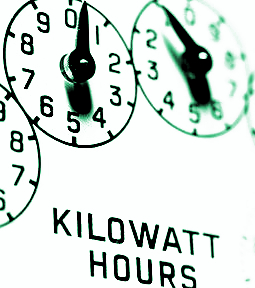Jobs and services risk seen in NSW power change
 The Australian Energy Regulator (AER) has told NSW energy companies to charge less, in a move some say could cost thousands of jobs.
The Australian Energy Regulator (AER) has told NSW energy companies to charge less, in a move some say could cost thousands of jobs.
The AER has officially lowered the amount that electricity providers can charge for household power bills, in move it says will push down bill by between 5 and 12 per cent next year.
The AER said it was responding to reduced demand for electricity, which means there is less strain on the network, which therefore requires less investment to provide reliable supplies.
But Networks NSW, a lobby representing the three NSW Government-owned network businesses, says a minimum of 2,500 jobs will be lost as a result.
The group says jobs will be cut predominantly from Ausgrid and Essential Energy.
“The reduction in funded jobs across the three network businesses as a consequence of this determination is a minimum, and I emphasise minimum, of 2,500 jobs,” Networks NSW chief executive officer Vince Graham said.
NSW Energy Minister Anthony Roberts said the loss of jobs was cause for some regret.
“New South Wales has a growing sector of private network contracts - known as Accredited Service Providers or ASPs - who perform many of the same functions across the network.
“We will work to support those workers who wish to transition across to the private sector, where their skills are in high demand.”
The Riverina Eastern Regional Organisation of Councils (REROC) says electricity companies may not have the right to cut jobs while making large profits.
REROC Executive Officer, Julie Briggs, said local providers Essential Energy should be forced to keep promises about the level of services it would provide, which were made before the AER’s latest determination.
She says it raises questions about the Australian Energy Regulator's processes.
“Of concern to us is the integrity, if you like, of this process,” she said.
“Because on one hand you have energy providers saying to the AER; ‘This is the level of service we are going to provide’, the AER comes back and says; ‘Well this is what we think you can charge’.
“The energy provider says; ‘Well we don't think that's enough money so we are not going to provide the services that we said we were going to give you’.”
NSW Opposition Leader Luke Foley said the AER’s call would mean the Government’s privatisation plan would yield less money than expected.
“It just stands to reason that with revenues lower in the order of 30 to 35 per cent, the assets won't be anywhere near as attractive to potential buyers than they otherwise would have been before this decision,” Mr Foley said.
The Council of Social Services of NSW has weighed-in too, saying all efforts must be taken to ensure savings are passed on to customers in full.







 Print
Print